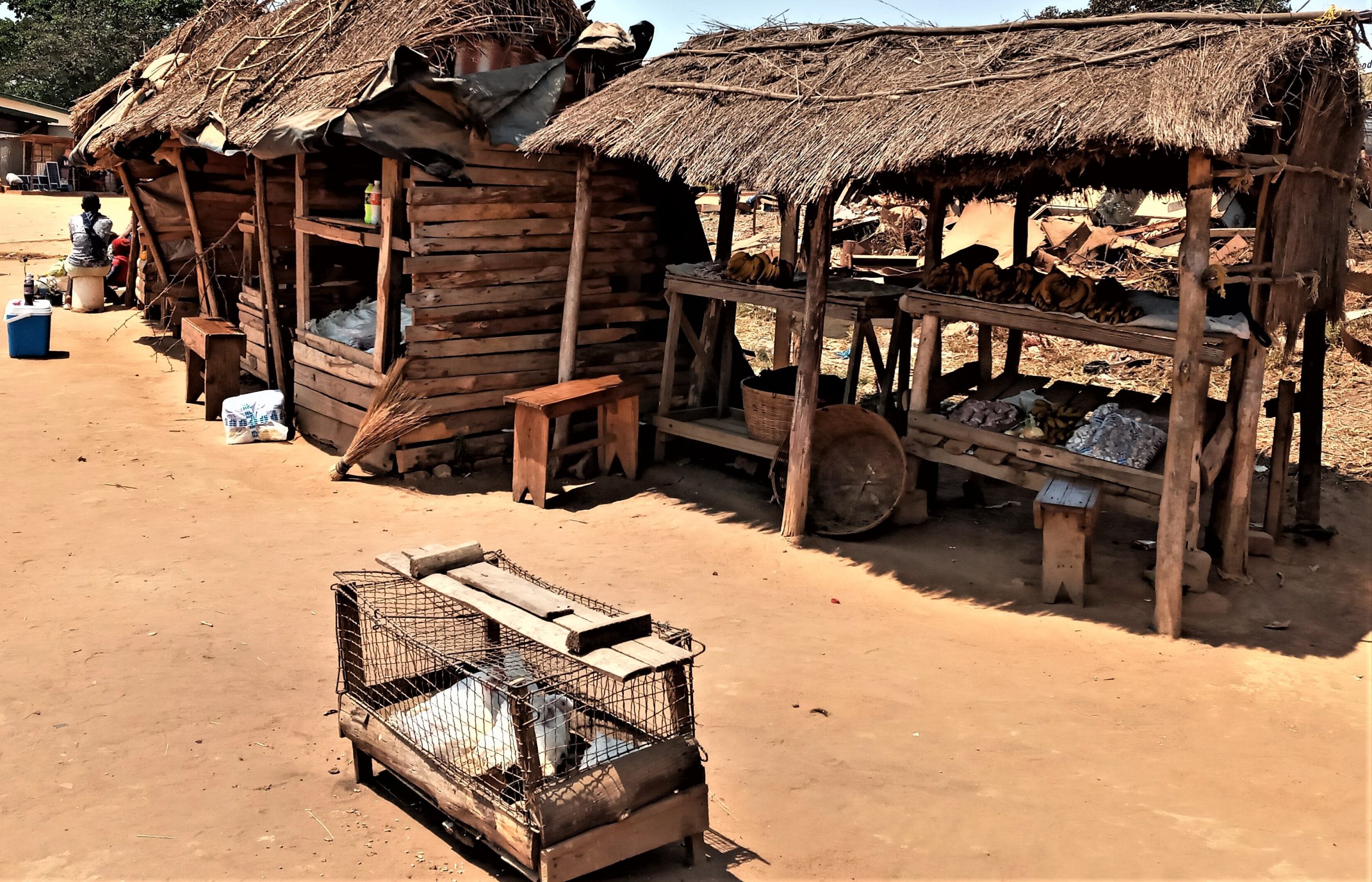
New dispensation Gvt politicking at expense of development: Hon Saruwaka
September 22, 2020
Watsomba vendors clash with local authority over roadside vending
September 25, 2020Public institutions urged to have effective online platforms

MISA Zimbabwe board member Ruth Butaumocho (standing) and Advocacy officer Malvern Mkudu during the Mutare workshop last week Friday.
…Female journalists urged to take the lead
Ngoni Dapira
PUBLIC bodies hold information not for themselves but as custodians of the public good and everyone has the right to access information. This was enshrined in the African Charter on Human and Peoples Rights says MISA Zimbabwe advocacy officer Malvern Mkudu.
However, this is the opposite of what most government institutions and parastatals do in Zimbabwe, a ‘Transparency Assessment 2020: The citizens’ analysis of government openness” report by the Media Institute of Southern Africa (MISA) has revealed.
Speaking during an ‘Access to Information’ workshop in Mutare last week Friday, Mkudu gave a snip preview of some of the highlights in the report, which is expected to be officially launched next week Monday in conjunction with the International Day for Universal Access to Information celebrations. The United Nations (UN) Educational, Scientific and Cultural Organization (UNESCO) in 2015 declared September 28 as the International Day for Universal Access to Information, and ever-since it has been commemorated each year.
Mkudu said MISA chapters and other local researchers, carried out a study in various countries that seeks to establish the ease or difficulty with which citizens can access public information. “Citizens require information to make choices and decisions and the study sought to determine whether such information which is held by public institutions is available to citizens upon request,” he said.
He added that the objective was to determine which public institutions provides information to citizens upon request, timeously and with relative ease, as well as to determine which organisations utilised online platforms to promote access to information in the information age.
The 2030 Sustainable Development Goal (SDG) 16 speaks about promoting peaceful and inclusive societies for sustainable development, providing access to justice for all and build effective, accountable and inclusive institutions at all levels. Of which, inclusivity is only possible where there are no restrictions to access information.

Information, Publicity and Broadcasting Services Minister Monica Mutsvangwa repealing AIPPA early this year.
Mkudu said while milestone achievements have been made in Zimbabwe from the era of the Access to Information Protection of Privacy Act (AIPPA),which has since been repealed, to present-day where Government is promoting transparency in its bid to return to constitutionalism, the battle has not yet been fully won. He said hope lies in the dawn of a new era under the Freedom of Information Act that came into effect on 1 July this year.
The Freedom of Information Act grants constitutional rights on freedom of expression, media freedom and access to information held by entities in the interest of public accountability. However, like many Zimbabwean policies, it may be well crafted but it has often been lack of implementation and consistency that will lead to the blemishes of the legislation.
After Mkudu asked Mutare journalists during the workshop, about their experiences in accessing information in public institutions, most revealed that gagging and frustrating delays remain an issue of concern, especially for journalists from the private media. An improvement was however noted that public institutions are now more forthcoming to all accredited journalists unlike before, where some organisations out rightly barred their spokespersons from relaying any information to specific media-houses. Most journalists concurred that the covid-19 pandemic had exposed poor online communication platforms in most public entities, but said post covid-19, a visible positive change is expected, after the eye opening experience.
Mkudu said in Zimbabwe the study however had limitations, “Given the limited time frame for the survey and the fact that Zimbabwe has been under Covid-19 lockdown restrictions since March 2020, it was not feasible to effectively test the new Freedom of Information Act effected in July and see whether there is now openness of the public organisations and to survey all organisations as originally planned,” he said.
Apart from Zimbabwe, the other countries that were surveyed in the 2020 MISA Transparency Assessment were Botswana, Eswatini, Lesotho, Malawi, Mozambique, Namibia, Tanzania and Zambia.
In the research 10 public institutions were examined, namely Chipinge Rural District Council, Chitungwiza Municipality, Environmental Management Agency, Forestry Commission of Zimbabwe, Ministry of Health and Child Care, Ministry of Mines and Mining Development, Ministry of Primary and Secondary Education, Ministry of Women Affairs, Community, Small and Medium Enterprises Development, Mutare City Council and the Zimbabwe School Examinations Council.
Chitungwiza Municipality emerged as the 2020 Golden Padlock Award winner, which meant it was the most secretive public institution. The survey findings revealed that the municipality did not respond to the requests for information. On the contrary the Environmental Management Agency (EMA) scooped the 2020 Golden Key Award because it has a partially up to date website and is active on social media. The findings further stated that although EMA was unable to provide the information requested, it explained its reasons.
“Apart from three organisations, all the rest scored badly. Several organisations claimed that information requests were not received. This means organisations should be encouraged more to use online platforms to disseminate information to the public. That said, the new legislation on access to information, as set out in the Freedom of Information Act, should be continuously evaluated,” said Mkudu.

MISA Zimbabwe board member Ruth Butaumocho
On the other hand, during the MISA Zimbabwe Mutare chapter annual general meeting held after the workshop, MISA Zimbabwe board member Ruth Butaumocho, a gender editor and senior journalist in the Zimbabwe Newspapers (Zimpapers) stable, urged female journalists not to be stepped on but to take the lead in the profession.
The veteran journalist who has been in the profession since 1998 said when she started at the Herald there were only two female journalists who eventually left, but she is happy to see that present-day more and more women are joining the profession and excelling.
.”So I just want to urge you ladies here, I was particularly happy that from the 18 journalists in this room five are women. I remember when I started working in the newsroom in 1998, that was a long time ago, and there were very few female journalists. I remember there were only two ladies in the Herald newsroom, there was Eunice Mapfundikwa who is now in the United States of America and Tonderai Katsvara who is now in public relations in Namibia,” she said.
Butaumocho who came out second in the Innovation and Technology category in the prestigious 2015 CNN MultiChoice African Journalist Awards opened up and said she is happy the environment is now safer for women in the newsrooms, unlike back in the days when they started. The CNN MultiChoice African Journalist Awards are given in recognition of the importance of the role of journalists in Africa’s development, telling the African story by Africans.
“You had to find your own terrain and own space as the male journalists would gang up against us. It taught me knowledge that I never learnt in the textbook at college, which we called survival in the school of hard knocks. But it also shaped me to be stronger and more determined which is why I am still in the profession up-to-date. But now as women we have a level playing field and opportunities to take the lead,” said Butaumocho.


